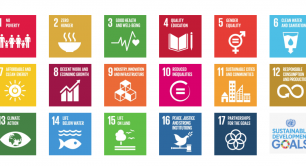Think tank advises corporates to 'change or die'
A new report offering guidance to companies looking to future-proof their businesses through the lens of sustainable development has been published.
The report Breakthrough Business Models: Exponentially More Social, Lean, Integrated and Circular was commissioned by the Business and Sustainable Development Commission (BASD). BASD sees sustainable development as ‘the greatest economic opportunity of a lifetime… to accelerate the world’s shift to inclusive growth.’
In the report, the 17 UN Sustainable Development Goals (SDGs) are considered to be a ‘radical agenda’ that necessitates a reconsideration of business models that ‘ensures industries are fit for tomorrow’s very different market and geopolitical realities.’
Companies that point to their CSR programmes as evidence that they have embedded a sustainability agenda, ‘do not go nearly far enough.’ A mainstay of the report is the need to ‘Think X’, shorthand for ‘Think Exponential’. Small improvements to the sustainable development of a company are not considered acceptable – the report suggests pushing for ‘10-fold improvements over time’.
Central to the argument for companies to look to sustainable development in the way their businesses are run also include ‘thinking social’. The report sees challenges presented by a population due to rise from 7bn to 10bn people in the next few decades as business opportunities, such as providing sustainable energy to remote communities in sub-saharan Africa.
A changing world
The way the world is changing requires businesses to ‘change or die’. The report cites the €500bn dip in value that EU energy companies saw as constraints on coal-fired and nuclear power stations were introduced, coupled with the increasing availability and declining cost of renewables.
An example of a company adapting to changing times is included too, with General Motors investing in lift-sharing company Lyft in the face of declining car ownership. Car sharing means less carbon emissions, so is directly related to UN SDG number 13 – climate change.
Provenance, a UK social enterprise using blockchain technology to track supply chains is also cited as an example of a business addressing one of the SDGs. SDG nunder 14 (‘Life below water’) aims to regulate harvesting and end overfishing by 2020.
The report includes recommendations for businesses wishing to adjust to a world that is changing socially, environmentally and economically.
It also points to examples of businesses that are innovative when looking to future challenges, including many examples on the Project Breakthrough website. Project Breakthrough is a partnership between Volans and the United Nations Global Compact, the self proclaimed ‘world’s largest corporate sustainability initiative’.
The report will influence the content of a forthcoming report from the Business and Sustainable Development Commission which will be launched at Davos in January 2017.
Photo credit: Sid Mosdell


